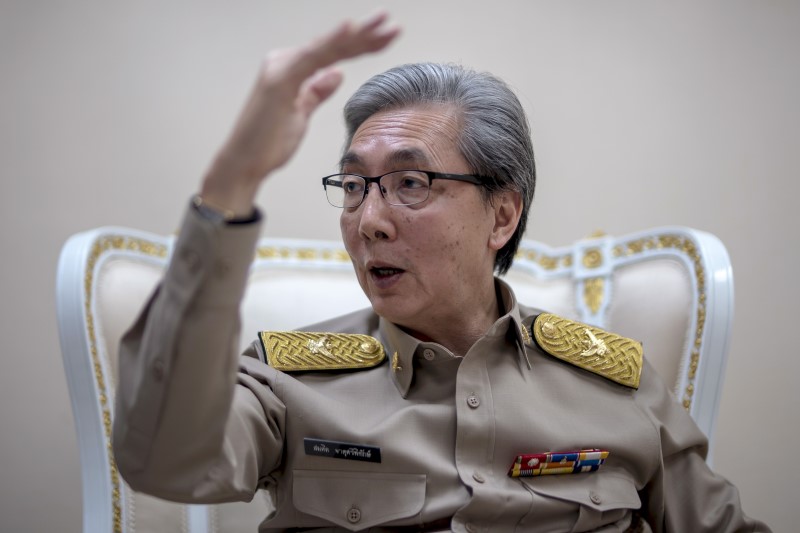By Kiyoshi Takenaka
TOKYO (Reuters) - Thailand is "highly likely" to seek membership of the Trans-Pacific Partnership (TPP) but would first need to weigh up the impact of the free-trade accord on its export-led economy, a deputy prime minister said on Friday.
The pact currently has 12 members and would slash tariffs in a bloc comprising countries from Canada, Australia and Japan to Mexico, Vietnam and Chile in a trade area of 800 million people worth about 40 percent of the global economy.
"Thailand is highly interested in joining TPP ...," Somkid Jatusripitak told a news conference in Tokyo. "Chances are high that Thailand will seek to join TPP."
Somkid, the country's economic tsar, said the government was analysing the impact of joining the trade deal, particularly on sensitive issues like agriculture and pharmaceuticals.
"We need to convene specialists and gain the public's understanding on these matters. We need a forum for discussion and exchanging views," he said.
Membership could be a boon for Thailand as competition heats up from rival exports and manufacturing economies like Malaysia and Vietnam, particularly in electronics, seafood and agriculture.
It could also benefit its autos industry, which accounts for about 10 percent of gross domestic product, and support large-scale investments in assembly plants in Thailand from Japanese carmakers like Toyota and Honda. Thailand is a regional production and export base for the world's top carmakers.
Thai Prime Minister Prayuth Chan-ocha said a comprehensive study of the pact was needed.
"We have to look at everything carefully before making a decision," he told reporters in Bangkok.
Thailand's expression of interest follows a marathon final round of talks in Atlanta that capped off six years of complex negotiations towards the biggest trade pact in a generation.
The Philippines has also signalled it may apply and Indonesia's trade minister on Tuesday said his country had "no choice" but to sign up, or risk losing its competitive edge.
Failure to come on board could hurt foreign investment flows into Thailand as TPP members would build up a supply chain within the bloc, Kbank Capital Markets wrote in a report.
"Thailand will need to weigh the benefits of the TPP against domestic institutional capabilities to prepare for changes in the new era of global trade," it said.
Thailand also needs to resolve its human trafficking problem as the United States refuses to negotiate with countries in its lowest tier for its Trafficking in Persons ranking, it said.

Thailand has been under military rule since a coup last year and its trade-dependent economy is still struggling as exports and domestic demand remain weak.